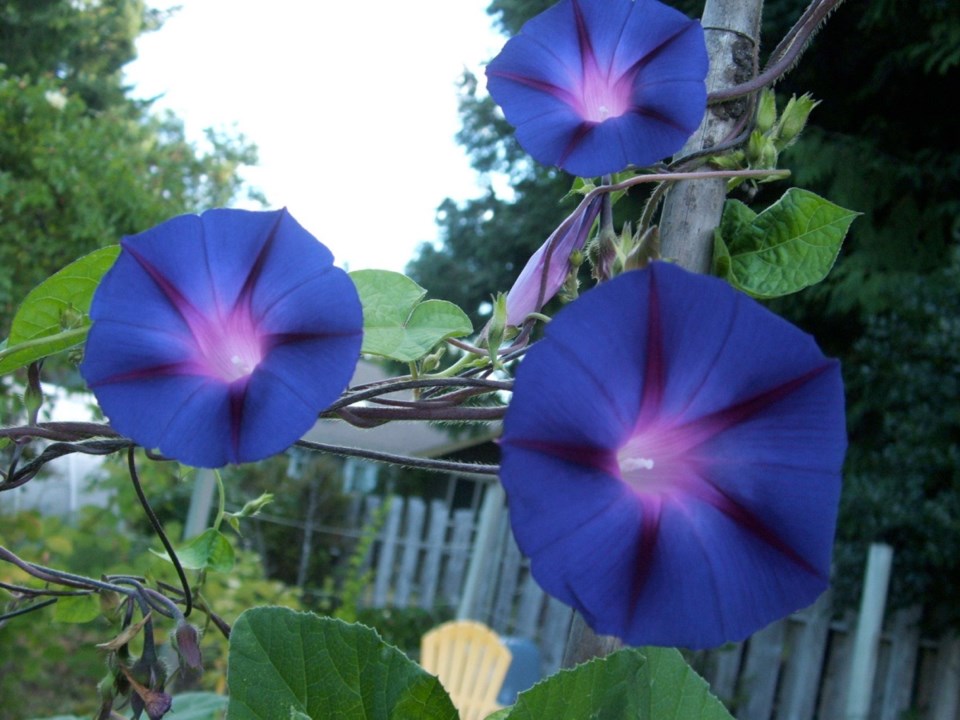Dear Helen: I’m often intrigued by the vegetable, herb and flower varieties you describe. My question: What catalogues do you use to find new and interesting varieties?
E.P.
Here is a basic roster of catalogues that I’ve used regularly for years. Typing the name into a search engine will take you to the website and information on ordering a catalogue for yourself or a gardening friend. Ordering from the online catalogue is another option.
• West Coast Seeds is the ultimate in user-friendly catalogues. Along with an extensive selection of vegetables, flowers and herbs are detailed directions and tips for growing them. At-a-glance charts show when to seed and transplant. Listings are interspersed with articles on organic gardening practices. Catalogues are available at garden centres carrying seeds from this source.
• Salt Spring Seeds grows all its own heritage seeds, which include beans, grains and seed garlic bulbs as well as interesting heirloom lettuce varieties such as ‘Drunken Woman’ and superb tomatoes such as ‘Speckled Roman.’ Customers who ordered using a 2018 print catalogue will receive another of those catalogues with a 2019 insert, as an expanded catalogue is going exclusively online. For those who prefer not to pay online, there will be a pay-by-cheque option at the checkout point.
• William Dam Seeds is one of my preferred catalogues for its reasonable prices and excellent and extensive selection of varieties, which include choice European vegetables such as Siderno, a richly flavourful and productive tomato bred in Germany for growing in containers. I grow extra transplants of this tomato for friends who garden on decks and balconies.
• Stokes Sees Growers Guide lists all the Stokes varieties with detailed seeding information. A pared-down home gardener catalogue lists and pictures their most popular vegetables, herbs, flowers and gardening accessories. The growers’ guide has the most extensive listings of pansies and violas available.
• T&T Seeds is an entertaining catalogue with unusual varieties and unique gardening aids. Among their climbers and vines is the gorgeous Grandpa Ott’s morning glory. T&T is a source this year for ‘Evening Scentsation,’ an easy-growing spreading, fragrant petunia. T&T’s nasturtium ‘Cream Purple Spot’ is described as a customer favourite.
• Lindenberg Seeds is a minimum-frills catalogue with a broad selection of vegetables and flowers at very reasonable prices. This is a source for the hard-to-find ‘Sweet Success’ cucumber, the earliest and most productive cucumber I have ever grown.
• Veseys Seeds has a colourful catalogue with an interesting selection of seeds and gardening aids such as brightly coloured “Tubtrugs” in varying sizes. Nasturtium fans will want to try ‘Orchid Cream’ and ‘Orchid Flame.’
• Johnny’s Selected Seeds is an employee-owned company with a blockbuster of a catalogue featuring many award-winning varieties from the company’s own breeding program. There is a huge selection of lettuces and other green vegetables, wonderful cut flowers, and pumpkins galore.
• Seed Savers Exchange has a beautiful catalogue celebrating heirloom vegetables and flowers. There are many striking old lettuces that have stayed popular over the decades, and pages of unusual and attractive squash and pumpkin varieties.
• Richters is a Canadian source for the broadest selection available of herb seeds and plants.
• Chiltern Seeds. For the connoisseur seed grower seeking the elusive, this 172-page British catalogue will be a source for adventure. The “VegBook” lists popular English varieties.
Dear Helen: I like your idea of growing basil and cilantro in pots indoors during the winter. What varieties are preferred for containers?
D.L.
The small-leaved basils are the easiest to grow in pots. The best one I’ve grown so far is Pluto, from William Dam seeds. The plantings stay compact, in a uniform dome shape, and they remain a long time in the green stage before beginning to flower.
In 2019, I’ll be trying Piccolino, from Johnny’s Selected Seeds. The catalogue describes Piccolino as “Our smallest Greek basil” with a spicy, sweet flavour and “similar to but slightly more uniform than Pluto, which it replaces.” Spicy bush is another small, dome-shaped basil from Johnny’s.
Cilantro in general is easy to grow in pots, though the slow-bolting type called Calypso has been bred to regrow after as many as three cuttings. There are compact selections bred for growing in pots. Richters lists Pot Cilantro. Sometimes, varieties described as suited to container cultivation are available on local racks.



